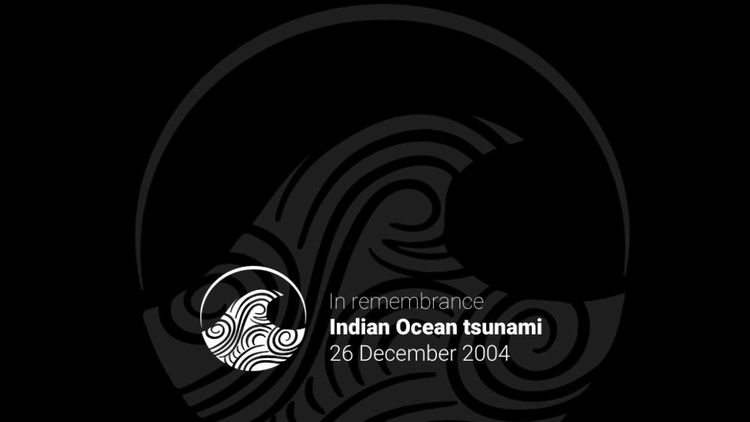“The 2004 Indian Ocean tsunami was a wake-up call for humanity ...

On 26 December 2004, the world experienced one of the most devastating disasters in recent history when the Indian Ocean tsunami struck with unprecedented force, claiming around 230,000 lives and wreaking havoc on fourteen countries.
For Kamal Kishore, now the Special Representative of UN Secretary-General (SRSG) for Disaster Risk Reduction, this tragedy was a turning point.
"The tsunami was a wake-up call for humanity to do more, to better understand disaster risks," he reflects.
The tsunami's destructive reach was vast, affecting not just Asian nations like Indonesia, Sri Lanka, India, and Thailand, but also communities far away.
"The tsunami affected Asian nations directly... but it also affected communities further afield, as far as East Africa," Mr. Kishore says.
"For Sweden, for example, the tsunami remains the nation's biggest disaster this century in terms of lives lost."
The disaster revealed the interconnectedness of modern societies and highlighted a blind spot in disaster risk management policy.
Reflecting on the lessons he learnt from his participation in the response and recovery in 2004 and 2005 as an official with the UN Development Programme (UNDP), Mr. Kishore recalls how the global community showed how we can come together in response to a crisis, with a flood of resources and funding, but also with a shared sense of humanity.
"Human beings are capable of infinite compassion, generosity and solidarity," he says.
View a related videoWarnings and preparedness go hand in handLater this unprecedented cooperation led to an effective early warning system for a complex hazard being established within a short 18 months.
This was made possible by countries separated by thousands of kilometres of ocean coming together to establish the Indian Ocean Tsunami Warning System.
"Facilitated by UNESCO, this was achieved through the efforts of countries from the global south - India and Indonesia - as well as Japan, Australia, and the United States," Mr. Kishore says.
However, there is an ongoing need to maintain and update warning systems, and ensure communities know how to respond: "An early warning system is not a one-time investment. These systems need to be practised and tested frequently."
This undertaking has been taken further with the UN Secretary-General's initiative to establish Early Warnings for All, an ambitious plan to provide universal multi-hazard early warning coverage by 2027 - extending to systems that forecast and alert communities to a spectrum of natural hazards, including tsunamis as well as other geohazards, extreme weather and climatic events.
Hazards such as tsunamis, which occur infrequently but with potentially devastating impacts, are a particular challenge, requiring efforts to remind the public and ensure preparedness.
"That is why Government of Japan championed the cause of tsunami awareness and, in 2015, the General Assembly designated 5 November as World Tsunami Awareness Day - on which UNDRR, UNESCO, and their partners spearhead the global #GetToHighGround campaign every year," Mr Kishore says.
Mr. Kishore notes the importance of empowering children, recounting the story of Tilly Smith, a 10-year-old whose quick thinking and application of her geography lesson on tsunamis saved many lives in Thailand.
"When children learn about disaster risks, they become drivers of resilience for their communities," he says.
View a related videoA holistic approachLooking to the future, Mr. Kishore calls for a holistic approach to resilience.
"It is important to recognize that it is not just about building stronger structures: it is also about better livelihoods and more cohesive (and hence resilient) societies," he says. "This requires a nuanced and localized understanding of the socio-economic and cultural context."
He points to the protective role of natural ecosystems, like mangroves, which mitigated tsunami impacts in places like Cuddalore district in Tamil Nadu Tamil Nadu, India.
"A judicious mix of hard infrastructure and natural assets is essential for safeguarding coastal communities," he notes.
The affected countries also learned the importance of establishing strong disaster governance. "The most affected countries - India, Indonesia, Maldives, Sri Lanka and Thailand - learned from each other and brought in new legislation for disaster risk management," he says.
Our responsibility to future generationsAs we mark the 20th anniversary of the Indian Ocean tsunami, Kamal Kishore reminds us of our shared responsibility to future generations.
"We must not forget the lessons of 2004. Investing in early warning systems and disaster education is investing in our children's future."
With increasing climate disaster risks, these lessons are more relevant than ever. By acting on what we have learnt from past disasters, we can turn tragic memories into a foundation for a safer, more resilient future.









































